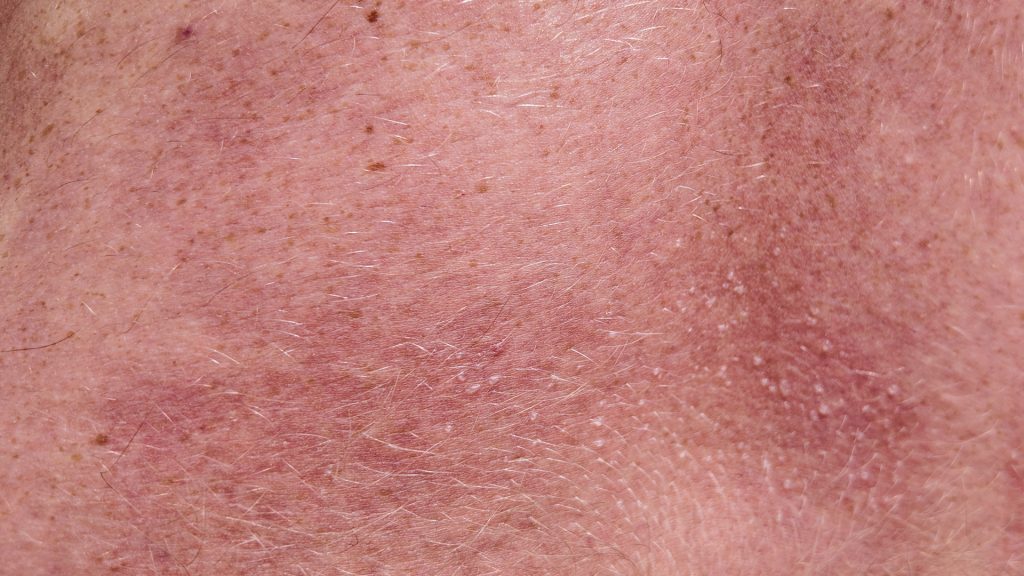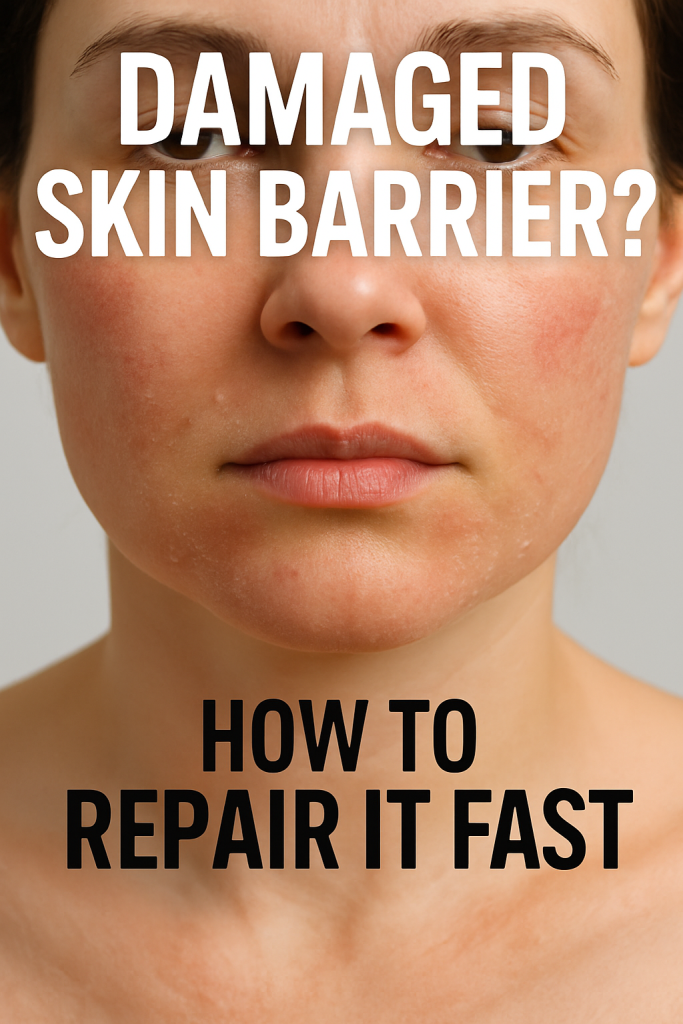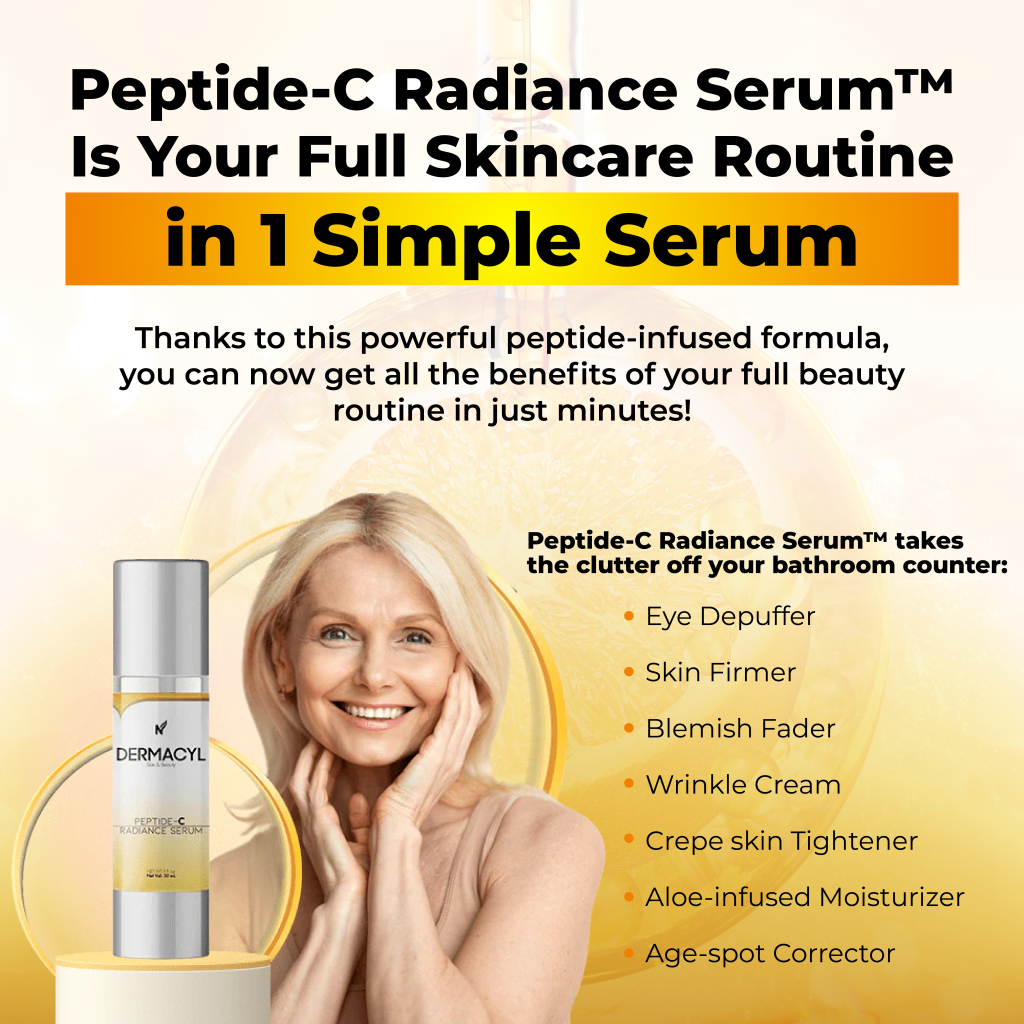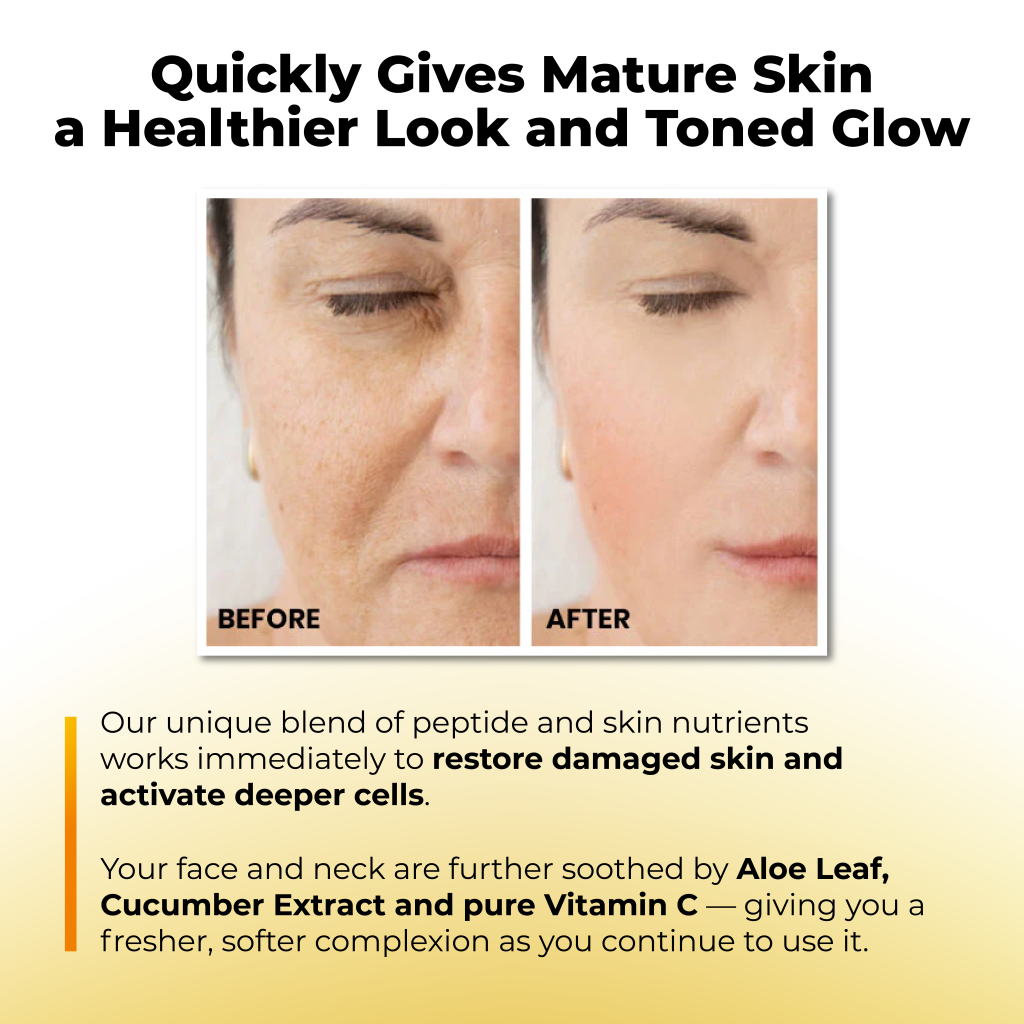
If your skin suddenly feels tight, dry, red, or more sensitive than usual, your skin barrier may be compromised. This protective outer layer plays a critical role in keeping moisture in and irritants out—and when it’s damaged, your skin can quickly spiral into inflammation, breakouts, or visible aging.
In this article, you’ll learn the signs of a damaged skin barrier, what causes it, and how to quickly repair it using dermatologist-approved strategies and barrier-strengthening ingredients.

Your skin barrier (also called the stratum corneum) is the outermost layer of your skin. It’s made up of skin cells held together by lipids like ceramides, cholesterol, and fatty acids. Think of it like a brick wall—your barrier keeps moisture in and environmental stressors out.
If you’re experiencing any of the following, your barrier may need repair:
Persistent redness or irritation
Flaky, dry, or tight skin
Burning or stinging when applying skincare
Breakouts or increased sensitivity
Dullness or rough texture
These signs often appear after over-exfoliating, using too many actives, or reacting to harsh products.
Harsh cleansers that strip natural oils
Overuse of exfoliants like AHAs, BHAs, or scrubs
Unprotected sun exposure
Stress and poor sleep
Fragranced or alcohol-based skincare
Cut out actives like retinol, AHAs, and Vitamin C for a few days. Stick to a gentle cleanser, fragrance-free moisturizer, and barrier-repairing serum.
Peptides help rebuild collagen and reinforce the skin barrier by boosting protein structures within the skin.
Recommended: Dermacyl Peptide-C Radiance Serum
Combines peptides + stabilized Vitamin C
Supports skin repair and deep hydration
Lightweight and safe for compromised skin
Look for moisturizers that contain ceramides, cholesterol, and fatty acids. These replenish your barrier’s lipid matrix.
Cleanse with lukewarm water and avoid scrubbing. Pat skin dry with a soft towel.
Even if indoors, UV exposure degrades the skin barrier. Apply a mineral-based SPF 30+.
With the right care, mild barrier damage can improve in 3–7 days. For more severe damage, allow 2–3 weeks of consistent barrier-focused care.
A healthy skin barrier is the foundation of any effective skincare routine. Without it, even the best serums can’t work properly. Repairing your barrier helps lock in moisture, soothe irritation, and prevent premature aging.
Ready to restore your glow from the inside out? Try Dermacyl Peptide-C Radiance Serum for gentle, effective support your skin will love.
Here at TruthAboutSkin.com we have tested hundreds of skin care serums. They are sent to us every single day. After years of trying new products, we are constantly going back to Dermacyl and recommending it to our family.
Dermacyl’s Peptide-C Radiance Serum is uniquely formulated for mature skin:
Dual-action anti-aging with peptides and Vitamin C
Hydrates, brightens, and firms in one step
Dermatologist-loved and cruelty-free
Whether you’re overhauling your skincare or just refining your routine, Dermacyl delivers real results without irritation.
Want to see what it can do for your skin? Click here to learn more about Dermacyl Peptide-C Radiance Serum
Sleep: Aim for 7–9 hours—your skin repairs itself at night.
Diet: Antioxidant-rich foods (berries, leafy greens, fatty fish) support collagen.
Water: Hydration begins on the inside—drink at least 8 cups/day.
Stress management: Cortisol can degrade collagen; try yoga, journaling, or a walk.

TruthAboutSkin.com is your go-to guide for evidence-based skincare, real product reviews, and honest answers about what actually works. Stay tuned as we dive deeper into each of these critical skincare topics — and help you find what works best for your skin.

Hi, I’m Sarah. I am the founder of TruthAboutSkin.com and on a mission to bring real results to mature women who want the very best for their skin.
For months, it was one of the fastest-selling skincare products in Costco’s beauty aisle—flying off shelves four separate times before quietly disappearing.
Aging is natural, but premature aging is often preventable. Fine lines, sagging, and dull skin can show up years earlier than they should—and many of the culprits are hiding in your daily routine.


For all products featured, results may vary. Please visit the product websites for further information.
These statements have not been evaluated by the FDA. These products are not intended to diagnose, treat, cure, or prevent any disease.
The information on this website is not intended as a substitute for professional medical advice. If you have, expect to have, or suspect you may have any medical condition, we recommend you consult with a physician.